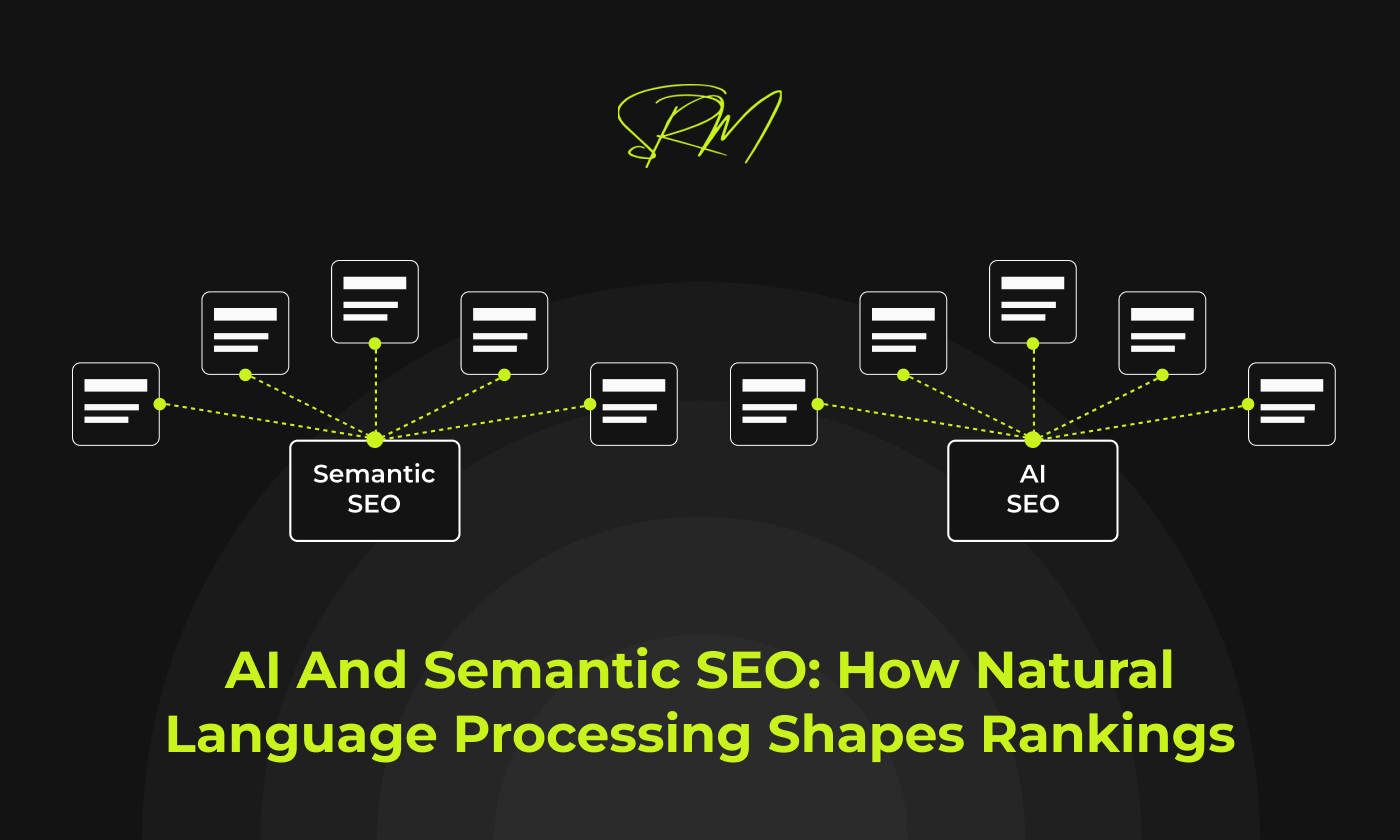
Search engines like Google are becoming smarter every year. In the early days, they mostly looked for exact keywords on a page to decide where to rank it. But now, things have changed. Today, search engines use AI (Artificial Intelligence) and a technology called Natural Language Processing (NLP) to understand the real meaning of content. This change has given rise to something called Semantic SEO.
Let’s explore what Semantic SEO means, how Natural Language Processing (NLP) works, and how both are changing the way Google ranks web pages.
What Is Semantic SEO?
Semantic SEO is a way of optimizing content to match the true meaning behind what people are searching for—not just their exact words.
Let’s say someone searches for “how to make a smoothie.” A page that talks about healthy smoothie recipes, the benefits of smoothies, and step-by-step instructions is more likely to rank than a page that just repeats “smoothie” many times. That’s because Google now understands the context and intent behind the search.
Semantic SEO focuses on:
- User intent
- Topic coverage
- Related keywords and entities
- Natural language
Instead of just keyword stuffing, Semantic SEO encourages you to write content that is meaningful and helpful to real people.
The Role of AI in Search Engine Understanding
Google uses AI to better understand the content on a web page. One of the biggest breakthroughs in recent years was the introduction of BERT (Bidirectional Encoder Representations from Transformers)—a system that uses Natural Language Processing.
Through BERT and similar models, Google can understand:
- The full context of a sentence
- The meaning behind a question
- Whether a page truly answers a user’s search
So instead of matching words exactly, Google now tries to match ideas and intentions.
What Is Natural Language Processing (NLP)?
Natural Language Processing (NLP) is a branch of AI that helps computers understand and process human language. It helps search engines understand written content the way humans do.
Here’s how NLP helps Google rank pages:
- Understands synonyms and related words
Google knows that “buy” and “purchase” are similar. - Grasps the meaning of a sentence
Instead of focusing on single keywords, it looks at the entire sentence structure. - Recognizes entities
NLP helps identify names, places, products, and events in your content. - Detects the content’s tone
Is the content informative, conversational, or promotional?
Thanks to NLP, Google doesn’t need you to repeat the same keyword many times. It can figure out what your page is about from your natural writing style.
Why Is This Important for SEO?
- Cover the full topic in-depth
- Use clear, natural language
- Answer common user questions
- Include related keywords and terms
When you do this, Google sees your content as more useful, and it becomes more likely to appear higher in search results.
Tips to Optimize Your Content for Semantic SEO
If you want to improve your website’s visibility using semantic SEO, follow these simple but powerful tips:
1. Focus on the Topic, Not Just Keywords
Instead of only targeting one keyword, create content that covers the entire topic. For example, if your keyword is “best smartphones for students,” also talk about features students need, affordable options, and battery life.
2. Use Natural Language
Write the way people speak. Use simple words and avoid overloading your content with repetitive keywords. Google understands natural, helpful writing.
3. Answer Questions
Find out what your audience is asking. Use Google’s “People Also Ask” section or tools like AnswerThePublic. Include those questions and answers in your blog.
4. Use Structured Headings
Break your content into sections with H1, H2, and H3 headings. It helps search engines (and people) understand the flow of your article.
5. Include Related Terms and Synonyms
Instead of repeating your main keyword over and over, use synonyms and related terms. For example, use “mobile phone,” “cellphone,” and “device” if you’re writing about smartphones.
Real-Life Example: NLP in Action
Let’s look at an example.
Imagine someone searches: “easy pasta recipes for beginners.”
Thanks to NLP, Google knows they are:
- Looking for recipes
- Want something simple
- Are new to cooking
So, Google will show pages that contain simple pasta dishes, step-by-step instructions, and beginner tips—even if those pages don’t exactly say “easy pasta recipes for beginners.”
This is how natural language and semantic understanding change the game.
How NLP Is Changing Content Creation
Today, SEO content writers must think like educators. Your job is not just to include keywords—it’s to answer questions, explain topics clearly, and build trust.
With the help of NLP, Google is rewarding content that:
- Is helpful
- Matches search intent
- Sounds natural
- Offers real value to the reader
So, the better you write for people, the better your content performs in search.
Conclusion: Writing for Humans and AI Together
As search engines evolve with AI and NLP, you must evolve too. Keyword stuffing is no longer enough. Semantic SEO is all about writing content that makes sense, covers the topic deeply, and serves the user’s needs.
If you write clearly, answer real questions, and focus on quality, Google will recognize your effort—thanks to Natural Language Processing.
Need expert guidance? SEO specialist Shiwali Ratan Mishra can help you craft content that ranks and resonates.
Start applying these tips today and watch your rankings improve, one helpful blog at a time.





